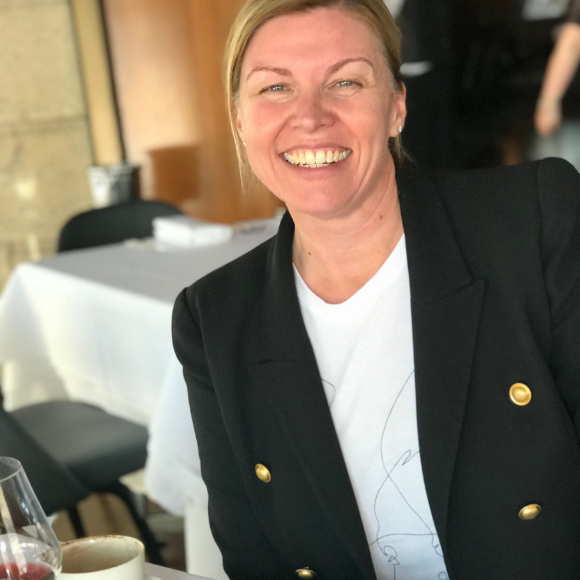When we spoke to Gabrielle Knowles, the Director of APAC Field Marketing for Splunk, she was refreshed after a long weekend. Splunk had just given the whole company a day off to say thanks. Gabrielle was the first woman to join the ANZ team, the (lucky) 13th employee in the region, and will be “a seven-year veteran in September!” She’s seen the company grow from just over 1,000 employees when she started, to now over 6,000 globally.
“It’s been really exciting. In technology, things don’t stay the same for very long and at Splunk that has been accelerated.”
Not the only woman
23% of Splunk’s employee-base across ANZ are women, with some areas reaching 50-50 men and women.
“There’s definitely a focus on getting more women into technical roles.”
Some of the initiatives Splunk is taking to attract and retain a diverse workforce are:
- Taking on interns in technical areas, many of whom have become permanent employees.
- Utilising Textio tool when creating job descriptions to mitigate bias and encourage applications from a diverse group of candidates
- Offering excellent flexible work options and supportive policies.
- Providing plenty of learning and growth opportunities.
- Ensuring there are female candidates put forward for every role, and if not, asking ‘why not’.

“At Splunk, you’re given opportunities regardless of gender. The whole leadership team maintains a focus on bringing more women in.”
Gabrielle is co-chair of the D&I Group, and part of setting up Employee Resource Groups (ERGs) to support staff. Splunk ANZ’s ERGs are:
- Womxn+ at Splunk. They celebrated International Women’s Day with a speaker and collecting donations for Dress for Success. “People’s generosity was amazing.”
- Pride at Splunk. They are looking at helping the Victorian Pride Centre, and Minus 18 who support young people identifying LGBTQI+.
- Neurodiversity at Splunk. Increased mental health challenges during this time have encouraged them to identify innovative ways to support people.
ERGs are led by passionate employees, with executive sponsorship and a group of people to help amplify the message across the company.
To inspire action through people and data, the company also runs Splunk for Good programs. With a focus on charity partnerships, they have hosted trivia nights to raise funds for bushfire affected areas, and for ‘a charity of your choice.’ For the most recent virtual trivia 140 employees have got involved!
“It’s amazing to see so much passion from people. It gives the team the opportunity to participate.”
Surviving breast cancer
Two years ago, Gabrielle was diagnosed with breast cancer. Her treatment was successful, and she shares, “Splunk were absolutely amazing. They were so supportive and thoughtful. They just said, ‘whatever you need, we’re here’. It felt like they were really thinking about what the best thing for me was, not just the best thing for the company.”
“Members of the leadership team checked in with me every day for months to see how I was. It absolutely blew me away. It shouldn’t be a surprise, but you hear very mixed stories about how people experience things like that.”
We asked Gabrielle whether her experience surviving cancer has shaped her outlook on work and life, and she laughed, “Before I had it, I used to say to my team, ‘We’re not curing cancer!’ Then one of my team members said I’m not allowed to say that anymore. But that’s always been my outlook. We like what we do and enjoy being part of the team, but you also need time to look after yourself outside of work. Splunk is very good at allowing you space to do other things that matter to you.”

Now, she feels incredibly loyal to the company and the people in it.
“One thing I notice the most about Splunk is how much you know about peoples’ families, children, pets and what’s going on outside work. It’s nice that there’s a human element to it. It’s not just about work.”
Testing a company’s culture
Gabrielle’s experience while she was sick is consistent with the culture more generally at Splunk. When she was considering the position, she did some research and heard positive things about their innovative products and culture.
“I met with the Country Manager and the Channel Manager, and I don’t think I’ve ever met anyone who speaks so passionately about the company they work for. It was infectious! I walked out of those meetings thinking, ‘I really want to work for that company!’”
Splunk has delivered, and seven years in Gabrielle says, “Splunk is the only company I have worked for where I can honestly say their values are more than just words on a page – we are encouraged to live them every day.”

To someone trying to assess the culture of a potential employee, Gabrielle suggests;
- Speak with current employees. “When I spoke to them, they were so passionate. I don’t think you can fake that. It was so authentic and settled any doubts I’d had.”
- Ask about the values. “More people think to ask about company culture now. It’s important to ask those questions about values. People either give it lip service or you can see their energy change because they really believe it.”
- Know what’s important to you. “It comes down to what’s important to you as an individual. A job is more than just a job to me.”
- Do your research. Find connections on LinkedIn and ask people you know. “It’s a good way to get feedback if there’s someone you trust who can give you some insight.”
- Understand your values. For Gabrielle, flexible work options and being able to balance her family and physical health with work are important.
“I don’t think you can have everything; you have to find balance. That’s where your workplace comes into it, and whether they give you the chance to balance the things that matter to you.”



